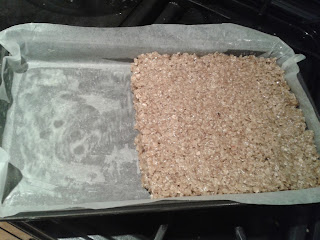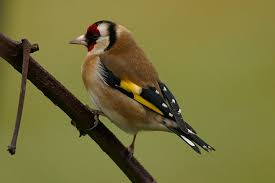Choices, choices! What Tomatoes am I
going to grow this year?
The US Dept of Agriculture lists over 25.000 different
varieties of tomato! How on earth to narrow down my choice from so many?!
One thing's for sure, I am going to be adventurous and
experiment with all sorts of unusual types of tomatoes this year, as after
years of lusting after one, I have finally got a greenhouse, inherited from a neighbour
after 10 years of abandonment who was going to chuck it away, it was
transferred pane by pane lovingly into
our back garden.
I am aiming for half a dozen or so different tomato varieties to grow: a
couple of cherry varieties for salads, always so popular with my three children; a beefsteak for sandwiches and some
medium sized flavourful varieties for tomato sauces. I always grow a couple of ‘Ferline’
plants for their blight resistance, just in case the crop gets it this year (sadly it
usually does). I will also try to grow a variety of different colours and
shapes, as they can look fabulous mixed together in a salad.
BLIGHT RESISTANT
VARIETY
Tomato Ferline
 |
| Tomato Feline |
A description from
the T&M website: In recent trials Tomato 'Ferline' has shown impressive
blight tolerance in a garden situation, and resistance to fusarium and
verticillium wilt. A useful variety for outdoor cultivation in even the wet
summers! Grow these vigorous, indeterminate plants as cordons either under
glass or outdoors, to produce heavy crops of deep red fruits of up to 150gm
(5oz) in weight, with a very good flavour. Height: 200cm (79"). Spread:
50cm (20").
CHERRY TOMATOES
Tomato Sungold
.jpg) |
| Tomato Sungold |
I LOVE this tomato, incredibly sweet flavoured. I am very
lucky that a friend’s Dad always raises a couple of these plants for me each
year, I wouldn’t be without it. It has been voted Best in Class for flavour and
has an RHS Award of Garden Merit. It is also celebrating 20 years of the
sweetest tomato, as voted by gardeners. An outstanding cordon cherry tomato for
glasshouse or outdoor culture, with an exceptionally high sugar content, that
easily rivals ‘Gardeners Delight’, its attractive, golden-orange fruit is irresistibly
sweet and juicy. The high yields of delicious fruit (each approximately 13g)
are ideal for salads or as a tasty snack, my boys eat them straight from
the plant. It also has good resistance to tobacco mosaic virus and fusarium
wilt. Height: 200cm (79"). Spread: 50cm (20").
Tomato Yellow Pear
 |
| Tomato Yellow Pear |
Before my greenhouse, I could reliably grow this variety in
a pot on my south facing patio against the house walls. It resists tomato
blight well. The fruit size is about 5cm, and is an Heirloom variety. It has long,
indeterminate vines producing a seemingly endless supply of mild flavoured,
pear-shaped tomatoes all summer, they remind me of the old fashioned sweet shop
pear drops – the yellow ones! The tiny tomatoes are borne in clusters and are
one of the prettiest tomatoes in the garden. The vines can grow 2 m plus, so they
need a tall support or place to ramble.
MEDIUM SIZED TOMATOES
Black Russian
 |
| Tomato Black Russian |
 |
| Tomato Purple Calabash |
I saw an episode of BBC2’s "What to Eat Now" where an avid
tomato grower (100+ varieties grown every year) was asked to name her favourite
tomato. She replied the Black Cuban. I hastily went online to track down the
seeds before the masses descended, to discover that the variety has many
different names (Black Russian or Krimm or Calabash to name abut a few). I
already have an unopened pack of Purple Calabash so will be growing them
alongside the variety Black Russian which I found on the Thompson and Morgan
website to see if there is any difference, and of course to come to my own
conclusions about the flavour. T&M describe Black Russian as: “A cordon variety, these
medium sized black tomatoes grow on compact plants bearing plenty of dark
mahogany-brown fruits, with a delicious blend of sugar and acid. Tomato 'Black
Russian' is an old variety with a rich, complex flavour that has to be tasted
to be believed. This variety is well suited to indoor or outdoor cultivation.
Height: 200cm (79”). Spread: 50cm (20”).
Tomato Viva Italia
 |
| Tomato Viva Italia |
Whilst doing some back ground reading/research before buying
my seeds, I came across a great USA website called Vegetable Gardener Magazine The Vegetable Gardener - growing paste tomatoes
which had an interesting article on growing paste tomatoes (or tomatoes to make
tomato sauce from). The upshot was that the best tomato for sauce being Tomato
Viva Italia. Now I am very aware this is for growing in the US, and that
success varies on many factors, not least length of growing season, a major
factor for me here in Blighty. I found the seeds on Amazon, so am beginning to
wonder if the reason no UK seed companies sell it is because it doesn’t do well
here. I am going to give it a go though! This tomato can also be eaten straight
from the vine in salads as well as canned or made into sauces.
Well my intention was to grow this one, but I couldn't get the seeds after all, so I have decided instead to try TOMATO CUOR DI BUE COUER DE BOUEF OF LIGURIA from The Seeds of Italy Franchi website, These ones are recommended by Raymond Blanc and in the Gardeners World magazine.
 |
| Tomato Cuor di bue couer de boeuf of Liguria |
BEEFSTEAK TOMATOES
Tomato Brandywine
 |
| Tomato Brandywine |
I have some of this seed left over from a previous year
which didn’t grow at all well – I don’t think I got any tomatoes at all, but as
this is my first year using the greenhouse I am going to give it the
benefit of the doubt and give it another
go! From the T&M website again a description: Tomato 'Brandywine’ is
particularly recognisable for its unusual leaves that resemble potato foliage.
Dating back to 1885, Tomato 'Brandywine' is regarded as one of the world’s
finest flavoured 'beefsteak' tomatoes. This exceptional variety produces heavy
yields of firm, clear skinned, light rosy pink fruits, often with slightly
green shoulders. With a full, sweet flavour these fruits are delicious eaten
fresh from the plant in salads, and sandwiches. This cordon variety is suitable
for growing in the greenhouse or outdoors. Height: 200cm (79”). Spread: 50cm
(20”). Surely that description alone warrants a second attempt?!
Wish me luck and many prayers for no blight infection this year!
I’ll post an update on how they are growing and then how they taste next
summer, and if any readers have some favourite varieties they grow then do leave a comment to suggest them as alternatives (or more likely additions - at this rate I'll need a bigger greenhouse!)

























.jpg)







